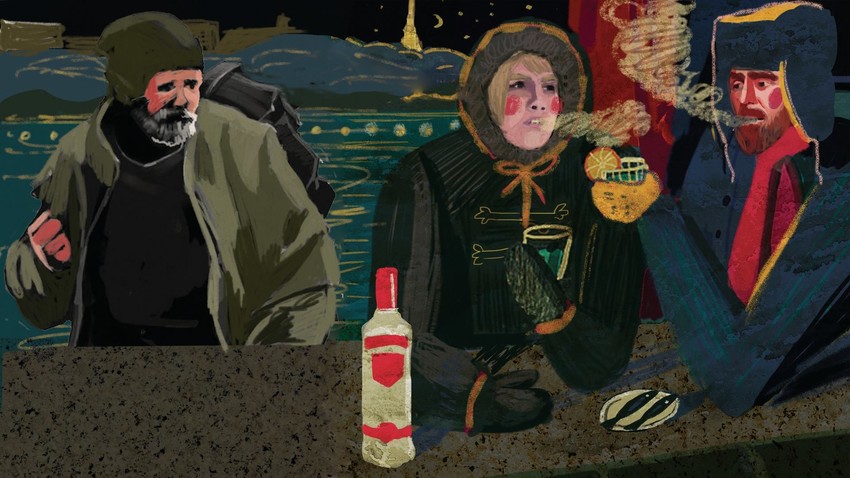
We have already written about some barely translatable words like ‘toska’ or ‘
This word comes from the old Slavic language and copies the Greek “
Russians consider
There is a widespread belief that Russians are big drinkers. Undoubtedly, plenty of words connected to the Russian drinking culture can be found in the language.
For example, there is no direct translation for the word “
Nowadays there are not many Russians who believe
The term pogrom has multiple meanings as a riot or massacre. However, mostly it describes the act of organized cruelty or killing that is done to a large group of people because of their race or religion. The act should be approved or condoned by the local authorities, too.
The term is usually applied to anti-Jewish violence in the Russian Empire in the late 19th and early 20th centuries according to Encyclopædia Britannica. The characteristics of a pogrom vary widely depending on the specific incidents, at times leading to, or culminating in massacres.
Later the term entered the English language in order to describe mass violence in other countries, for instance, in Germany (“Kristallnacht” also called Night of Broken Glass or November Pogroms).
Originally this word had a specific meaning – an old woman, a female witch doctor. Some linguists believe the combination of the sounds "
One version claims this word transformed into famous babushka (grandmother). In the 18th
The embodiment of the Russian baba is well-known due to Nikolai Nekrasov’s poem Who Is Happy in Russia?: baba is a woman who can stop a horse at full tilt and enter a burning house!
Nowadays the word will sound offensive to a Russian woman.
Originally this word meant “a married peasant man”. After the Russian revolution in
Who is a real muzhik? It's a man in possession of a wide range of qualities: he's not just strong, but patient, what you see is what you get, and he uses his
However, the word is not so unequivocal: it may also signify an uneducated, boorish man.
Smekalka is one of the typical features of the "mysterious Russian soul": it’s not just being savvy, ingenious or inventive - it’s the skill to solve problems quickly and simply in imaginative ways.
In Russian folktales, good characters always have a lot of
Smekalka helped honored Russian commanders achieve great and miraculous victories. When military general Alexander Suvorov had to cross a broken bridge in the Alps, he made his soldiers knit the logs with their scarves, which enabled them to fix the bridge!
This Russian word can roughly be translated as hobo – a person who has no home and wanders constantly. But a
This is a philosophical cornerstone of Russian literature and culture in general. According to religious beliefs,
Besides,
This word is often used in the expression "
Khalyava is the complete opposite of the typical American dream in which you become successful as a result of a hard work. Russian happiness includes wealth obtained by pure luck or a rich relative who suddenly appears, immediately dies and leaves you a fortune.
A day before exams, students who didn’t succeed in their studies try to attract "
The word comes from prison slang, but today you can hear many Russians using it. It was derived from the word "
When Russians say
Keep in mind that the word has an expressive negative subtext. Being among decent people, you’d rather say “
If using any of Russia Beyond's content, partly or in full, always provide an active hyperlink to the original material.
Subscribe
to our newsletter!
Get the week's best stories straight to your inbox